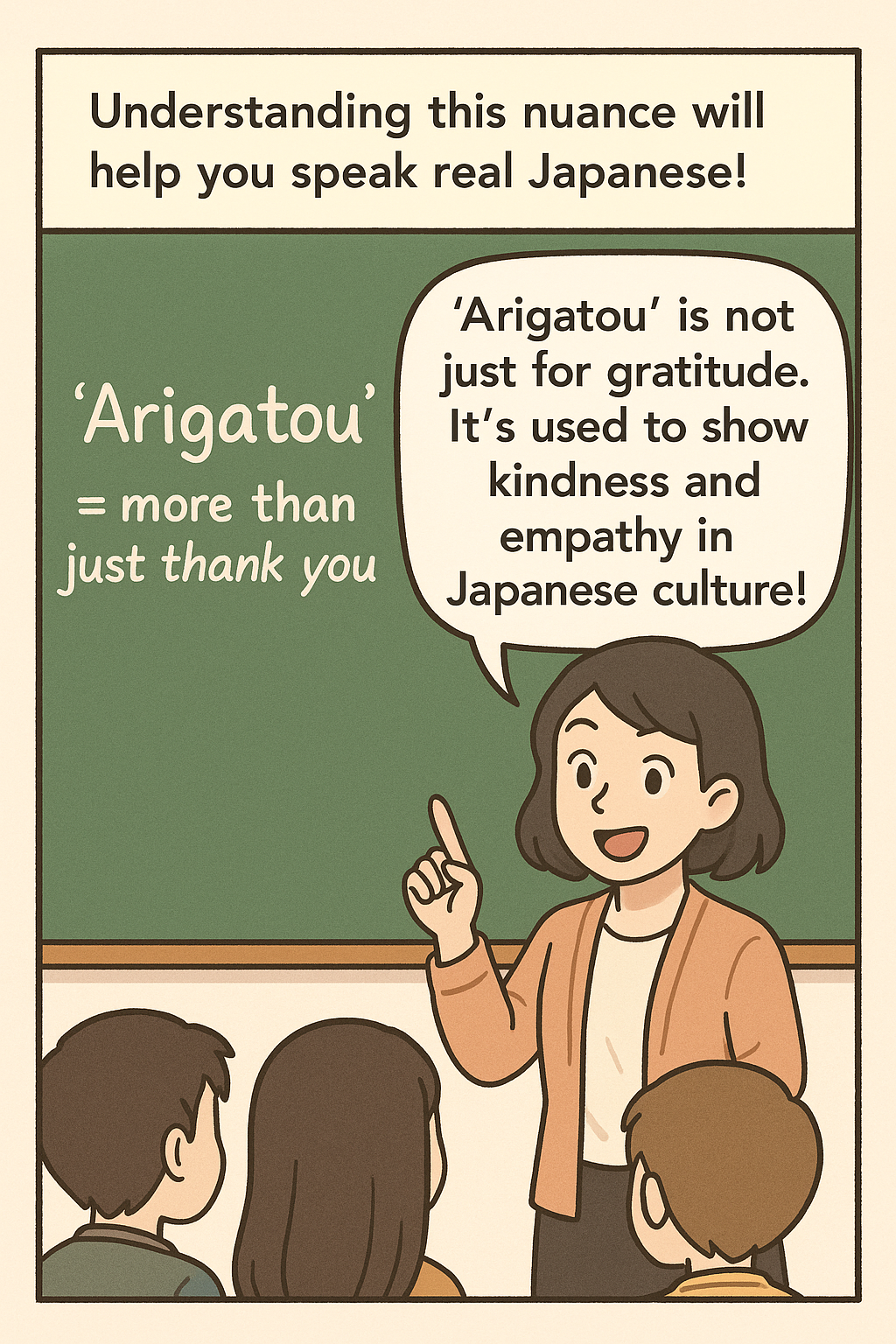はじめに / Introduction
「ありがとう」と聞くと、ほとんどの人が「感謝の言葉」として思い浮かべるでしょう。 しかし、日本語ではこの言葉が意外な場面でも使われることがあります。
When you hear "arigatou," you probably think of it as a word of gratitude. But in Japanese, this phrase is also used in some surprising situations.
実は「ありがとう」は、時に謝罪や気まずさの緩和のためにも使われているのです。
In fact, “arigatou” is sometimes used to soften an apology or relieve awkwardness.

感謝と謝罪が混ざる場面 / Gratitude and Apology Together
たとえば、こんな会話を聞いたことがありませんか?
Have you ever heard a conversation like this?
A:「わざわざ来てくれてごめんね!」
B:「ううん、ありがとう〜」
A: “Sorry for making you come all the way here!”
B: “No, thank you~”
この「ありがとう」は「来てくれてありがとう」でもあり、「気を遣ってくれてありがとう」という意味も含まれます。
This “arigatou” means “thank you for coming,” but also “thank you for being considerate.”
断られても「ありがとう」? / Saying "Thank You" Even When Rejected?
また、お願いを断られたときにも「ありがとう」と返すことがあります。
“Arigatou” is also used when someone turns down your request.
A:「すみません、今日はちょっと無理です…」
B:「あ、わかりました。ありがとう。」
A: “Sorry, I can’t today…”
B: “Oh, I understand. Thank you.”
これは「返事をしてくれてありがとう」「気にかけてくれてありがとう」という意味を含んでいます。
Here, “thank you” means “thank you for your response” or “thank you for considering it.”
文化的背景 / Cultural Background
日本語には「空気を読む」「察する」といったコミュニケーション文化があります。 「ありがとう」は、そのやさしさや思いやりを表すツールでもあるのです。
Japanese culture values reading between the lines and being sensitive to others. “Arigatou” is a tool to express kindness and empathy in subtle ways.
まとめ / Conclusion
「ありがとう」は単なる感謝の言葉ではなく、さまざまな感情をやさしく包み込む、日本語ならではの表現です。
“Arigatou” is more than just a thank-you word — it wraps many feelings in a gentle, Japanese way.
日本語を学ぶうえで、こうしたニュアンスを理解することはとても大切です。
Understanding these subtle meanings is key to mastering real-life Japanese.